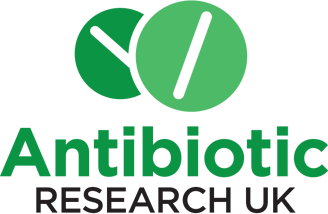One of Antibiotic Research UK’s key objectives is to provide funding that supports UK university academics in their research into antibiotics and antibiotic resistance. Our Small Research Grants fulfil that objective and allow us to quickly allocate funding in response to new research opportunities as and when they arise.
Research is vital to our mission – the knowledge and understanding it produces is key to beating antibiotic resistance and saving modern medicine. But good research takes time. We are delighted to have some results to share with our supporters from 2018’s Small Research Grants recipients.
The 2018 Small Research Grants funding round
In 2018, we received approximately 30 applications for our Small Research Grant fund. The fund in that year amounted to £25,000 and supported six projects. We felt these six would provide the most impactful results and were given the highest scores by our grant review panel.
The successful projects covered a wide range of topics:
- Antibiotic usage on Dairy farms in Great Britain: improving data capture and exploring drivers
Led by Dr Pablo Alarcon (Royal Veterinary College, University of London); received £3,969. - Impact of hospital antibiotic use on patient-level risk of death among 36,124,372 acute and medical admissions
Led by Dr Eric Budgell (Nuffield Department of Medicine, John Radcliffe Hospital, University of Oxford); received £12,780. - The parental experience of prophylactic antibiotics (PEPPA)
Led by Dr Simon Hardman and Prof Alison Confliffe (Sheffield Children’s Hospital); received £4,000. - Infections causing deaths on UK neonatal units: The ‘Neonatal Antimicrobial Resistance and Outcome (neoAMRO)’ study
Led by Dr Eva Drysdale and Prof Paul Heath (St George’s, University of London); received £4,000. - Antibiotic use in cats and dogs: a qualitative study of UK pet owners’ experiences
Led by Alice Tompson (London School of Hygiene and Tropical Medicine); received £3,835. - Parents’ perceptions of antibiotic use and antibiotic resistance (PAUSE): a qualitative interview study
Led by Dr Oliver Van Hecke (University of Oxford); received £1,033
Impact and future implications
Dairy farms
Dr Alarcon’s (The Royal Veterinary College, London) study found discrepancies in data for antibiotic use on farms. Farmers were recording an average of 30% less antibiotics than was actually being used. This and other findings relating to record-keeping and data submission were shared with the developers of a centralised antibiotic record system. This will hopefully lead to more accurate data on antibiotic usage on dairy farms being gathered. This would give more opportunity to intervene when high use is identified, resulting in a reduction in overall antibiotic usage.
Hospital antibiotic use
Dr Budgell’s (University of Oxford) study found that the variation between high and low antibiotic use in hospitals is not associated with a risk of harm. This means that whether a hospital prescribes more or less antibiotics than the national average does not seem to have an effect on the outcomes of their patients. Low-prescribing hospitals could therefore be used as benchmarks. Reductions in antibiotic use in higher-prescribing hospitals can be carried out safely, reducing overall hospital antibiotic use.
Parents’ attitudes when children are prescribed prophylactic antibiotics
The study undertaken by the University of Sheffield by Dr Simon Hardman and Professor Alison Conliffe aimed to understand how parents of children on prophylactic antibiotics may view future antibiotic use. The researchers proposed a model of phases that the parents go through when their children are given antibiotics. They suggest that better awareness of the issues parents face could reduce their anxiety and improve the parent-clinician relationship. It could also increase the chance of their children taking the full course of antibiotics as prescribed. This is very important for preventing antibiotic resistance.
Infections that lead to new-born deaths
The study at St Georges, University of London by Dr Eva Drysdale and Prof Paul Heath, has been delayed due to the COVID-19 pandemic. It will hopefully begin again soon. Researchers intend to improve how new-born babies with invasive bacterial infections are treated. They aim to provide important evidence for new national guidelines.
The use of antibiotics in pets
The study was conducted by Alice Tompson (London School of Hygiene and Tropical Medicines) as part of her PhD. It found that pet owners are largely happy to follow their vet’s advice on the use of antibiotics. However, antibiotic resistance is rarely discussed during consultations. Recommendations for ensuring owners are effective antibiotic stewards include using the internet, groomers, pet shops, pet classes and other opportunities to raise awareness of antibiotic resistance with information leaflets. Alice also highlighted the particular difficulties that come with administering medicines to animals instead of people. This included difficulties due to the animal’s behaviour, and that demonstrations by vet nurses could be used to help combat this issue.
Parents’ understanding of antibiotics
The study by Dr Oliver van Hecke (University of Oxford) looked at parents’ understanding of antibiotics in relation to treatment of respiratory infections in children. It explored how amenable parents might be to a new treatment approach in order to reduce antibiotic consumption. Interestingly, the parents seemed to interpret awareness campaigns in such a way that would allow them to not change their behaviour. Very few considered antibiotic resistance as a potential harm from using antibiotics. This provides valuable insight for future campaigns, such as the need for clear and easy-to-understand wording (something we have long championed ourselves).
Valuable new knowledge
As well as impact for patients, parents, farmers, vets and more, these grants also produced a wealth of new knowledge and understanding that will benefit researchers and clinicians in their pursuit of new ways to beat antibiotic resistance. At the time of writing, the following research outputs have been produced or are currently in progress as a result of these six projects:
- Two PhD theses
- Six research manuscripts, to be published in three peer-reviewed journals
- Twelve oral or poster presentations at conferences, universities and to expert working groups
- One written report to industry (veterinary practices and farmers)
- One report presented to clinicians and participating patients/parents of patients
Research for a better future
Each of these projects has, or will, produce results that could help to save modern medicine through better antibiotic use and stewardship. Our 2018 Small Research Grants have made a real difference in this field; the projects funded have taught us how antibiotics are used in animals, suggested new approaches to clinical practise, and highlighted how communication with patients can be improved.
If you would like to support our work and allow us to fund more research like this, please consider leaving a gift in your will or making a donation today.

